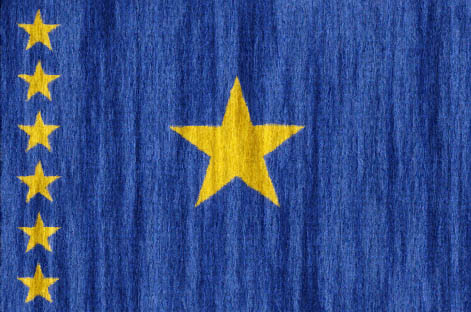Reuters
The Congolese army said it made significant advances against eastern rebel forces in a second day of fierce fighting yesterday and called on neighbouring Rwanda to help disarm the insurgents.
The army clashed with M23 rebels for the first time in two months on Friday after peace talks in Uganda broke down this week. Rwanda accused the army of firing a shell into its territory, sparking fears that its military might intervene.
M23 said in a statement yesterday that the army had launched a “generalised attack” on several fronts, but said the fighting was turning in its favour.
Army spokesman Colonel Olivier Hamuli said, however, that M23 had been forced out of Kibumba, a town some 20km north of Goma, the largest city in eastern Democratic Republic of Congo.
“We have pushed M23 into the hills on the Rwandan border,” he told a Reuters reporter near the frontline. “We now call on Rwanda to help us disarm their fighters.”
UN investigators have accused Rwanda of supporting M23, charges that Kigali denies.
Hamuli said the army was also advancing from Rwindi, north of M23-controlled territory in Congo’s North Kivu province, attacking the rebel group in a pincher movement.
M23 formed in early 2012 when army soldiers mutinied, saying the government had broken a 2009 peace deal signed with a previous Rwanda-backed rebel movement.
On Friday, Rwanda said shells fired by the Congolese army landed in its territory. Rwanda’s UN ambassador told a closed-door meeting of the Security Council it would not tolerate such shelling and could respond militarily, diplomats said.
The fighting is the most serious since late August, when the Congolese army and a new UN Intervention Brigade forced M23 from positions just north of Goma. The brigade, made up mostly of South African and Tanzanian soldiers, has a mandate to take on and destroy armed groups in eastern Congo.
On-off peace talks between the government and M23, taking place in the Ugandan capital Kampala since December, stalled on Monday, with the government saying it would not offer rebel leaders a blanket amnesty.
The UN peacekeeping mission in Congo (Monusco) said on Friday it was on high alert and monitoring the clashes. Monusco aircraft flew over the region but South African and Tanzanian troops present near the frontline did not join the combat.
A UN spokesman in New York said some 5,000 civilians had fled across the border into Rwanda.
In a joint statement, UN special envoy to the Great Lakes region Mary Robinson and head of MONUSCO Martin Kobler urged restraint and called on both sides to return to the negotiating table in Kampala.
EU foreign policy chief Catherine Ashton urged rebels in the Democratic Republic of Congo and regional players to commit to peace yesterday.
A statement from Ashton’s office expressing strong concern over a second day of clashes in the northeast urged “the M23 to commit urgently to a peaceful solution based on the provisions” laid out in peace talks in Kampala that broke down on Monday.
She also called on “all actors in the region to prevent further escalation and internationalisation of the conflict.”
“The reported impact across the border in Rwanda of recent actions should also be jointly investigated,” she said.
Ashton reiterated that the region had agreed to a framework calling for an end to support for armed groups and urged “all actors to live up to their responsibilities to ensure peace.”
Former colonial power Belgium also expressed deep concern, its Foreign Minister Didier Reynders warning that “the immediate victims of this violence will once again be the local population.”
Fierce clashes resumed at dawn yesterday north of the big strategic city of Goma between the army and the M23 rebels.
On Monday, the rival sides both announced a halt to peace talks taking place in the Ugandan capital Kampala despite UN pressure to end the 18-month-old rebellion ravaging eastern DR Congo.
Backed by the international community, DR Congo’s government is refusing to give amnesty to about 80 leaders of the M23 rebels and to enlist these men into military ranks.

